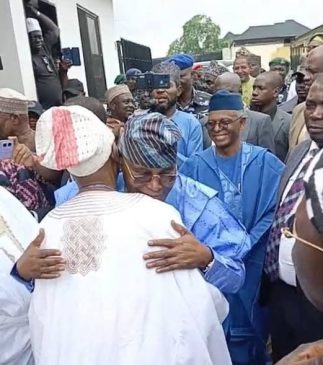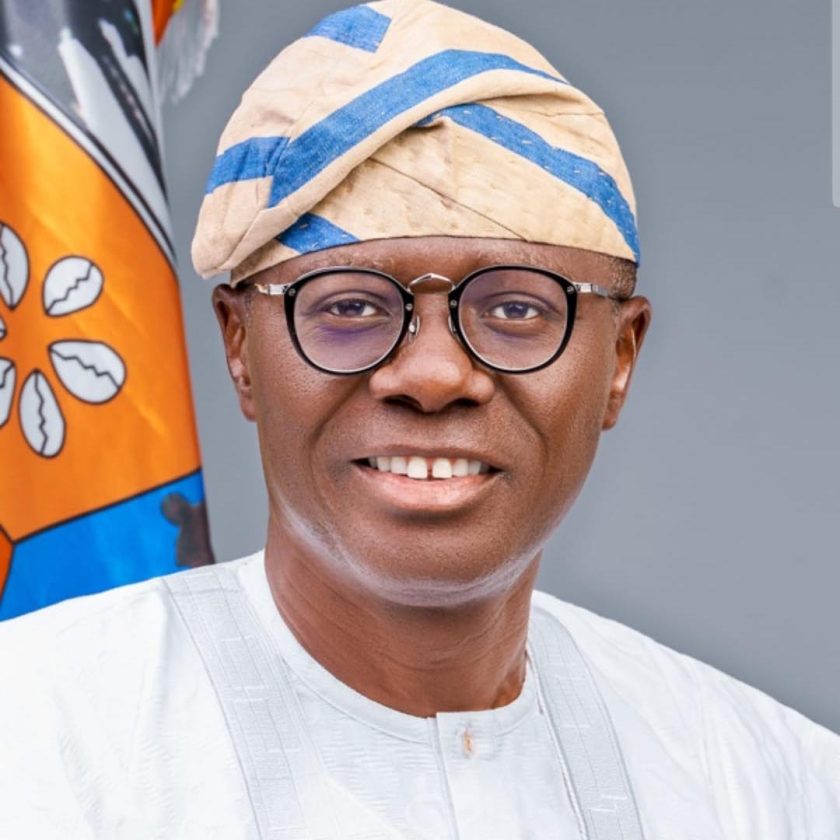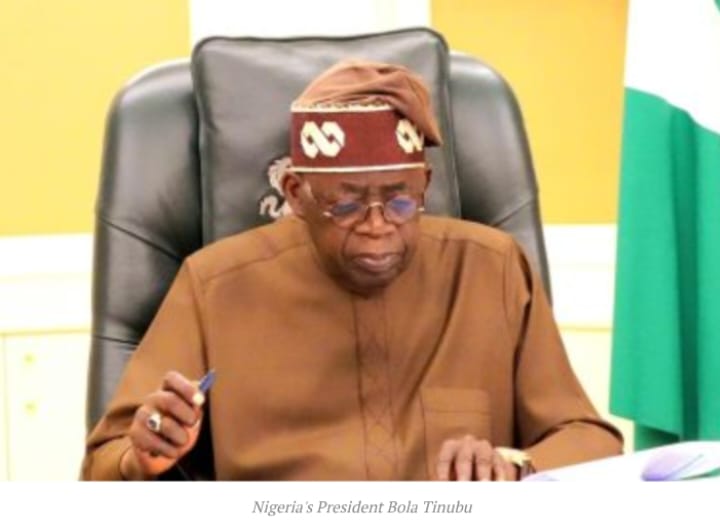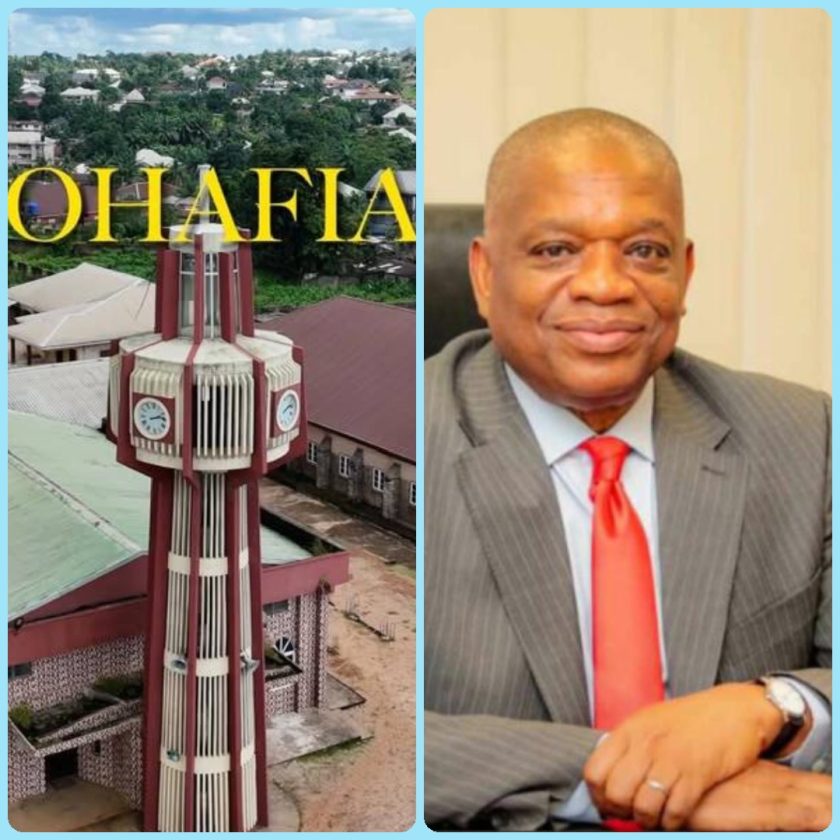By Mogaji Wole Arisekola.
The historic visit of His Excellency, Alhaji Atiku Abubakar, to the Imperial Majesty, Oba Rashidi Adewolu Ladoja, transcends the boundaries of politics. It is more than a courtesy call—it is a reminder of a turbulent chapter in Nigeria’s democracy.
My path first crossed with Kabiyesi Oba Ladoja in 2004, when I organized The Street Journal Newspaper Awards to celebrate notable personalities across Nigeria. Determined to make the event unforgettable, I reached out to then Vice President Atiku Abubakar, requesting that his wife, Her Excellency, Chief Mrs. Titi Atiku Abubakar, attend alongside other first ladies.
Like magic, I soon received a call from her protocol officer, Ambassador Bolaji Akinremi, confirming her attendance. On that memorable day, Mrs. Titi Atiku Abubakar arrived with the wives of ten state governors, including Oyo State’s First Lady, Chief Mrs. Mutiyat Ladoja, accompanied by Governor Ladoja’s Press Secretary, Chief Adeola Oloko. Their support, alongside Akinremi’s, ensured my guests were treated with dignity. Those relationships endure to this day.
By 2006, destiny pulled me deeper into Nigeria’s political storm. I returned from abroad at the very peak of the bitter quarrel between President Olusegun Obasanjo and his deputy, Atiku Abubakar. Through Atiku’s daughter, Dr. Fatima Abubakar—then studying medicine in Dublin—I had already built ties with the family. It was only natural that I pitched my tent with Atiku when the cracks within the ruling PDP became a full-blown war.
That year, I joined Atiku’s camp in negotiating an alliance with Lagos State Governor, Asiwaju Bola Ahmed Tinubu, and his Alliance for Democracy (AD). Out of that pact, the Action Congress (AC) was born—an alternative opposition platform strong enough to challenge PDP’s dominance.
But Obasanjo was determined to crush anyone loyal to Atiku. He turned his presidential arsenal against perceived enemies: Atiku in Abuja, Tinubu in Lagos, Boni Haruna in Adamawa, Danjuma Goje in Gombe—and most ruthlessly, Rashidi Ladoja in Oyo State.
One unforgettable night, Obasanjo summoned Governor Ladoja to his Abeokuta home. With the authority of a political godfather, Baba bluntly told him to choose—either abandon Atiku or prepare to vacate his seat as governor. But Ladoja, a man of rare courage, refused to bow. He told Obasanjo to his face that he was elected to serve the people of Oyo State, not a master in Abuja. Obasanjo exploded with rage and ordered everyone out of his house. Chief Olabode George even went on his knees, begging Baba to reconsider, but Ladoja would not budge.
We left Abeokuta that night, shaken by the raw power of the presidency. By the time we got outside, Governor Ladoja’s security aides had mysteriously vanished. Some of us advised against traveling back to Ibadan in the dead of night, but Ladoja insisted. At dawn, we arrived safely—but the experience remains etched in my memory as the night I truly understood the might of Aso Rock.
Obasanjo’s vengeance was swift. With the help of Baba Adedibu and other local power brokers, Ladoja was illegally impeached in January 2006 by only 18 of the 32 lawmakers. The governor was forced out of Agodi Government House, humiliated for daring to defy his “godfather.” But the courts later vindicated him. In November 2006, the Court of Appeal restored Ladoja as governor, ruling that his removal was unconstitutional. That victory was not just Ladoja’s; it was a triumph for democracy against executive tyranny.
During this period, I had my own baptism of fire in politics. One night, I received a call from Governor Ladoja asking me to submit my CV to Lagos. Days later, I was formally nominated as the running mate to Alhaji Dodo, the Action Congress gubernatorial candidate in Oyo State. It was a moment of pride, but also the beginning of new challenges. Some party leaders, led by the late Alhaji Lam Adesina, opposed the decision, insisting that we were newcomers in Action Congress. Internal wrangling persisted, and eventually, the ticket was reshuffled. Alhaji Dodo was replaced, and Professor Taoheed Adedoja became the new candidate.
Despite the setback, I remained deeply involved in the struggle. I shuttled constantly between Ibadan, Lagos, and Abuja, ensuring that lines of communication remained open among Atiku, Tinubu, and Ladoja. We were forging an opposition strong enough to challenge Obasanjo’s PDP. Although the battles were fiery and often bloody, God stood with His people. The newly formed Action Congress emerged victorious in Lagos and became a formidable force nationwide. Governor Ladoja, undeterred by betrayals, later nominated me as spokesperson for the party in Oyo State, where we gave PDP the fiercest opposition it had ever faced.
Looking back today, Atiku’s visit to Kabiyesi Ladoja is not just a personal reunion—it is a powerful reminder of resistance against oppression, of courage in the face of tyranny, and of the sacrifices that laid the foundation for Nigeria’s vibrant opposition politics. Obasanjo may have wielded the full weight of presidential power, but men like Atiku, Tinubu, and Ladoja stood their ground. History will remember that.
*Mogaji Wole Arisekola writes from Ibadan.




